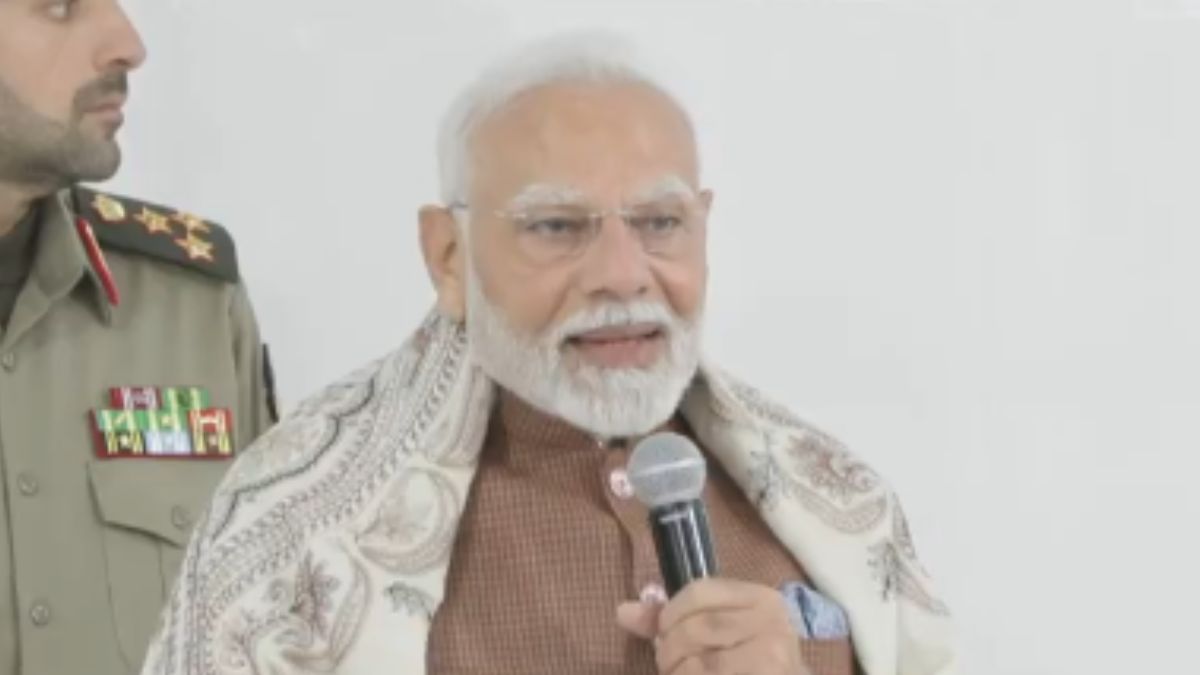PM Modi Medical Leave was the unexpected focus of a heartfelt interaction between the Indian Prime Minister and workers at the Gulf Spic Workers Camp in Kuwait. During his visit, one of the workers boldly asked, “Sir, do you ever take medical leave?” PM Modi, known for his charismatic responses, said, “I’ll tell you how I get [medical leave]. It is like how I came here. The smell of workers’ sweat is my medicine.”
PM Modi’s Interaction With Gulf Workers
PM Modi’s meeting with Indian workers at the Gulf Spic Workers Camp was a part of his diplomatic tour aimed at strengthening ties with the Middle East. The Prime Minister engaged with workers from various industries, addressing their challenges and listening to their experiences. His response to the worker’s question about medical leave highlighted his commitment to public service and drew attention to the rigorous demands of leadership.
The workers present were visibly moved by Modi’s acknowledgment of their struggles and contributions. Many took the opportunity to share their personal journeys, expressing gratitude for the support and recognition they received from the Indian government.

Focus On PM Modi Medical Leave Question
The question about medical leave brought a human element to the interaction. Modi’s response was not just a reflection of his personal philosophy but also an acknowledgment of the hard work and perseverance of Indian workers abroad. His statement, “The smell of workers’ sweat is my medicine,” resonated deeply with the audience, symbolizing solidarity with the labor force.
This remark sparked widespread discussions on social media, where many praised Modi’s dedication to his role and his ability to connect with ordinary citizens. However, it also raised questions about the toll such a demanding schedule might take on leaders like him.
Indian Workers In The Gulf
The Gulf region is home to millions of Indian workers who play a significant role in the economies of their host countries. From construction to healthcare, Indian expatriates form the backbone of many industries in the Middle East. Despite their significant contributions, these workers often face challenges such as inadequate wages, poor living conditions, and limited access to healthcare.
PM Modi’s visit to the Gulf Spic Workers Camp was a gesture of recognition for these unsung heroes. His interaction underscored the importance of their work and reiterated India’s commitment to safeguarding their rights and welfare.
Diplomatic Significance Of The Visit
The Prime Minister’s interaction with Indian workers in Kuwait was part of a broader diplomatic mission aimed at enhancing India’s relationships with Gulf countries. These nations are vital trade and energy partners for India, and the Indian diaspora serves as a crucial link between the two regions.
By engaging directly with workers, PM Modi not only reinforced India’s soft power but also highlighted the government’s focus on the welfare of its citizens abroad. The visit also aimed to address concerns about labor rights and bilateral agreements on workforce policies.
A Glimpse Into Modi’s Leadership Philosophy
PM Modi Medical Leave response offered a glimpse into his approach to leadership. Known for his tireless work ethic and commitment to public service, Modi’s statement reflected his belief in drawing strength from the people he serves. This philosophy aligns with his larger vision of servant leadership, where the leader prioritizes the needs and well-being of the community.
Over the years, PM Modi has often emphasized the importance of connecting with citizens at a grassroots level. His interactions, whether in India or abroad, are designed to build trust and foster a sense of unity among diverse groups.
Public Reactions To PM Modi’s Statement
The exchange between PM Modi and the worker quickly went viral on social media, with many users lauding the Prime Minister’s humility and ability to relate to common people. Supporters praised his dedication to his duties, while critics questioned the practicality of such a grueling schedule for a leader of his stature.
“The Prime Minister’s response was inspirational and showed his genuine respect for hardworking individuals,” one Twitter user wrote. Another commented, “While it’s great to see Modi connecting with workers, it’s also important to acknowledge the need for self-care, even for leaders.”
Challenges Faced By Indian Gulf Workers
The Indian workforce in the Gulf faces numerous challenges, ranging from exploitative contracts to unsafe working conditions. Many workers rely on remittances to support their families back home, often enduring harsh environments and long hours to make ends meet.
PM Modi’s visit brought these issues to the forefront, highlighting the need for stronger bilateral agreements to protect workers’ rights. The interaction also served as a reminder of the resilience and determination of Indian expatriates, who continue to excel despite adversities.
Building Bridges With The Diaspora
One of the key aspects of PM Modi’s foreign policy has been his focus on the Indian diaspora. Recognizing the pivotal role played by Indian communities abroad, Modi has consistently worked to strengthen their connection with India. His visits often include direct interactions with expatriates, emphasizing their importance as cultural ambassadors and economic contributors.
By addressing the concerns of workers in Kuwait, PM Modi reinforced the government’s commitment to their welfare. Initiatives such as skill development programs and financial assistance for overseas workers further demonstrate India’s efforts to support its diaspora.
Continuing The Dialogue
PM Modi Medical Leave remarks at the Gulf Spic Workers Camp underscore the importance of meaningful dialogue between leaders and citizens. Such interactions humanize governance, bridging the gap between policymakers and the people they serve.
This event is a testament to the power of direct communication and the impact it can have on fostering trust and goodwill. It also highlights the need for continuous engagement with the Indian diaspora, ensuring that their voices are heard and their contributions acknowledged.

